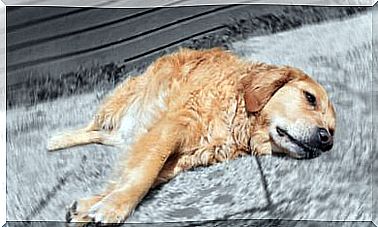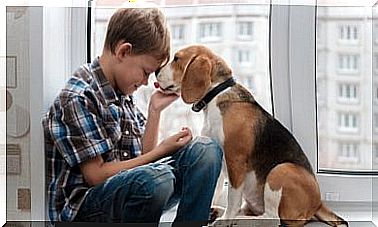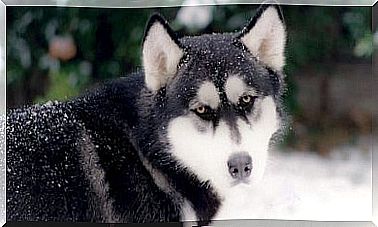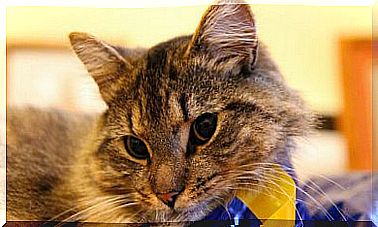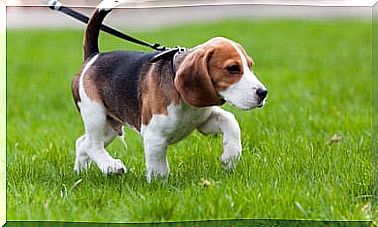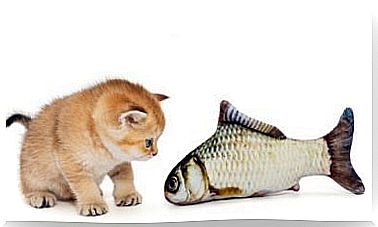Poodle Or Poodle, A Loving Companion
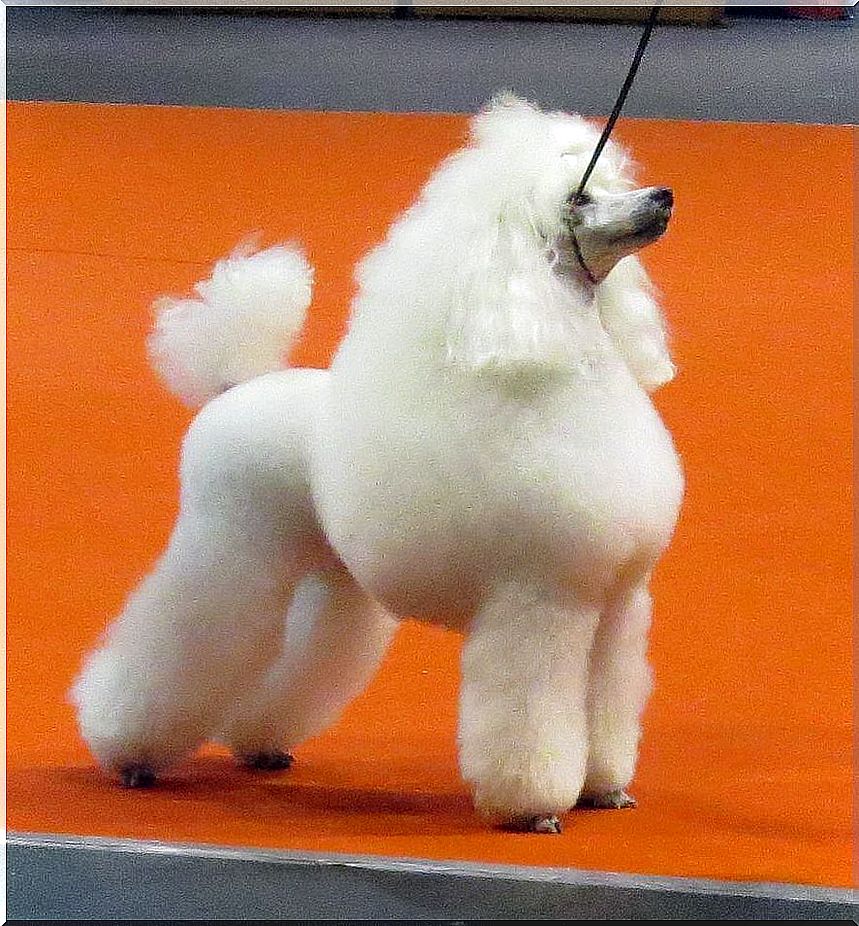
The poodle or poodle is a breed of dog that dates back to the 15th century, when it was a breed of common choice among aristocrats. At that time this dog was used to recover hunted prey that had fallen into the water.
Today, however, they are found in beauty dog shows around the world for their great elegance. Learn more about this breed of small dogs with a unique personality and aesthetics very pampered by their owners.
origins
Currently, the origin of this breed is still in controversy. There are three countries vying for the feat: Germany, France and Russia. What is clearer is that they used to be the exclusive property of noble families who used them to collect game that fell into the water.
One of the theories about the origins of the poodle suggests that in Germany the most favorable characteristics of the French Barbet were selected to adapt to the retrieval of prey, such as ducks and geese.
The first records of poodles date back to the 15th century but already in the 16th century the popularity of the breed stood out for its beauty. Artists such as Dürer and Goya present these dogs in their works. In the court of Louis XVI of France the presence of poodles was common. The spread of the breed across the European continent began gradually.
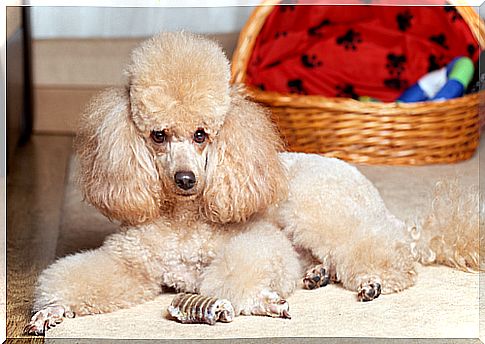
Doesn’t it look like a dog with nobility in blood?
The poodle is very graceful when walking and flaunts extravagant hairstyles to highlight its look at international dog shows. Today they are better known for this facet, it is surprising to see that they were prey dogs.
Physical characteristics
Poodle aesthetics is a highly accomplished art that has been in development for centuries. Its most beautiful specimens are references in dog shows. The dimensions of the poodles change between the types of this breed but they have features common to all of them:
- Long ears
- Fine complexion
- Muscled body
- Tips provided
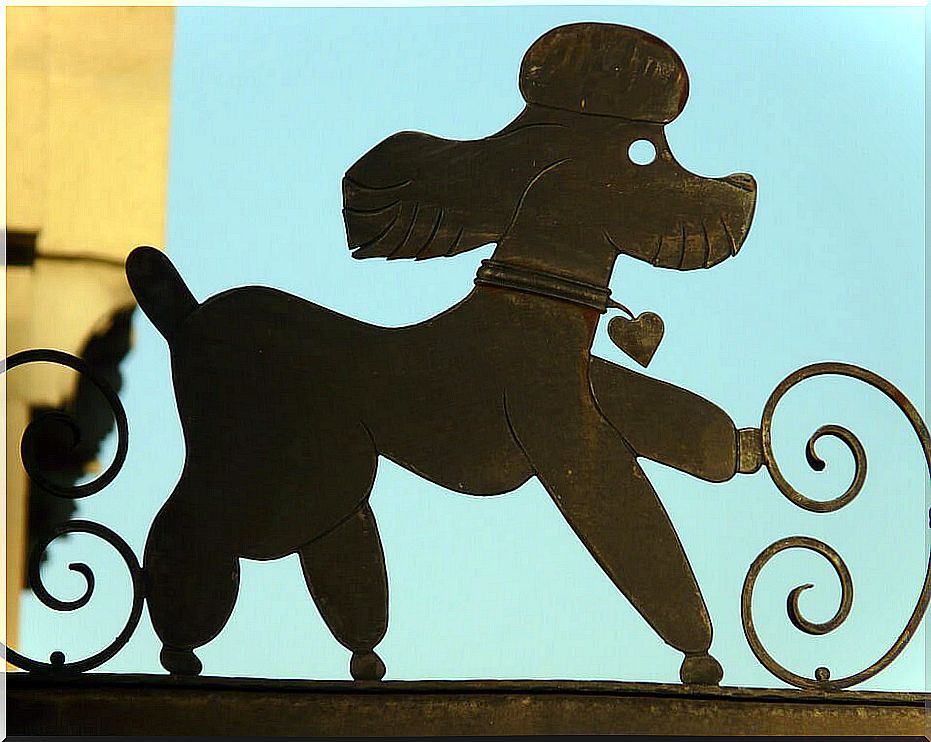
In addition, the dimensions of the varieties of poodles are comprised between the following values:
- Height between 35 and 45 cm
- Weight between 3 and 10 kg
- Life expectancy from 12 to 14 years
- Average physical activity
Poodle types
There are different varieties of poodle: large, medium, dwarf and toy. They all have in common their soft fur, long ears and a pronounced muzzle. In addition, regardless of the variety you choose, they all recognize the same colors: white, brown, black, gray, apricot and red.
The dwarfs and toys are the most requested since, apparently, people have the idea that these are more tender and affectionate. But the truth is that in addition to their physical traits, all Poodle varieties have their personality traits in common.
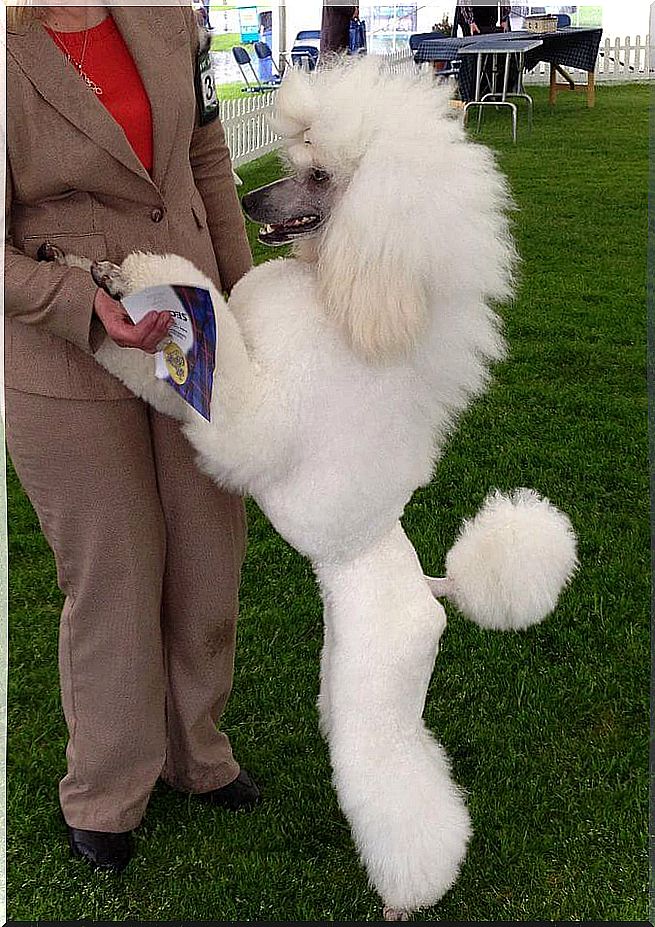
And it is that any poodle, of the variety that is, is extremely affectionate. And isn’t that exactly what we want when acquiring a pet? A poodle will not disappoint you in that sense, it is a very faithful companion for life.
Character
The poodle is characterized by being very sociable, so it will quickly integrate into the life of its owner and family. The poodle will look to feel integrated into his new family when he arrives. These are its main features:
- Balanced
- Sociable
- Smart
- Quiet
- Active
With his behavior and body language he will show you every day how much he loves you. Its cheerful character makes it an ideal breed to live with children, in addition to the fact that it has an enormous capacity for adaptability to people. Fits with a broad owner profile.
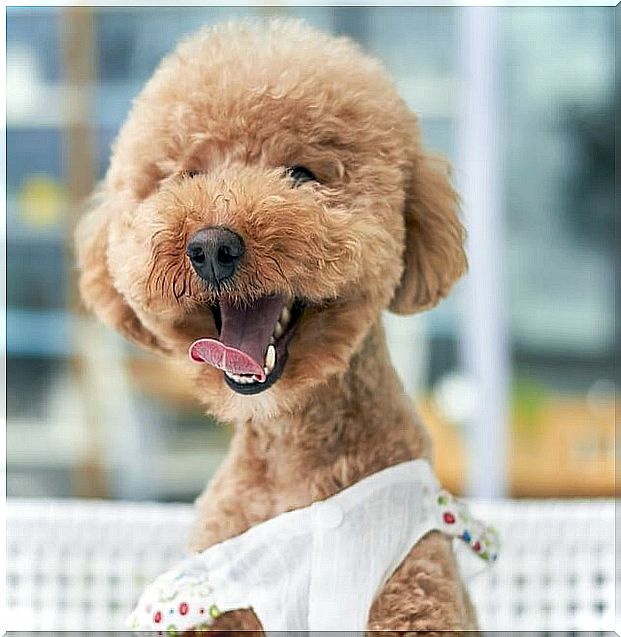
Have you seen a more sincere smile?
These dogs can change markedly between infancy and maturity. They quickly get used to the character and tones of voice of each member of the family. They become one more at home.
Dog with empathy
A poodle has another very curious ability: it can detect your mood; in fact, it is extremely sensitive to it. It is able to perceive if you are sad. This breed is recommended for people who want to alleviate stress with a pet at home.
But empathy is more than just acknowledging what someone is feeling. It is a compassionate feeling that prompts you to do something to remedy the situation the person is going through.
Therefore, your poodle will quickly come to you when it detects a negative mood in you and will do everything possible to make you feel better. Isn’t it incredible that a dog has this ability?

Who wouldn’t want to have a friend like that?
On the other hand, they are not scandalous dogs. Their barks are not very loud since, after all, they are not guard dogs, they are dogs that were born to live with company. These dogs are very happy when they see you walk through the door.
Your poodle will always answer your calls. He will be obedient, loyal, always ready to be pampered (both to receive and to give them), he will go crazy whenever he sees you, he will lie at your feet when you are sitting and next to your bed when you are sleeping.
Education
You may have met a poodle that seems aggressive or rude, but this is rather the exception to the rule. The poodle is an extremely intelligent breed and very easy to educate by anyone. Once you have received the basic instruction, your instructions will be easily remembered and you will be able to live comfortably with your pet.
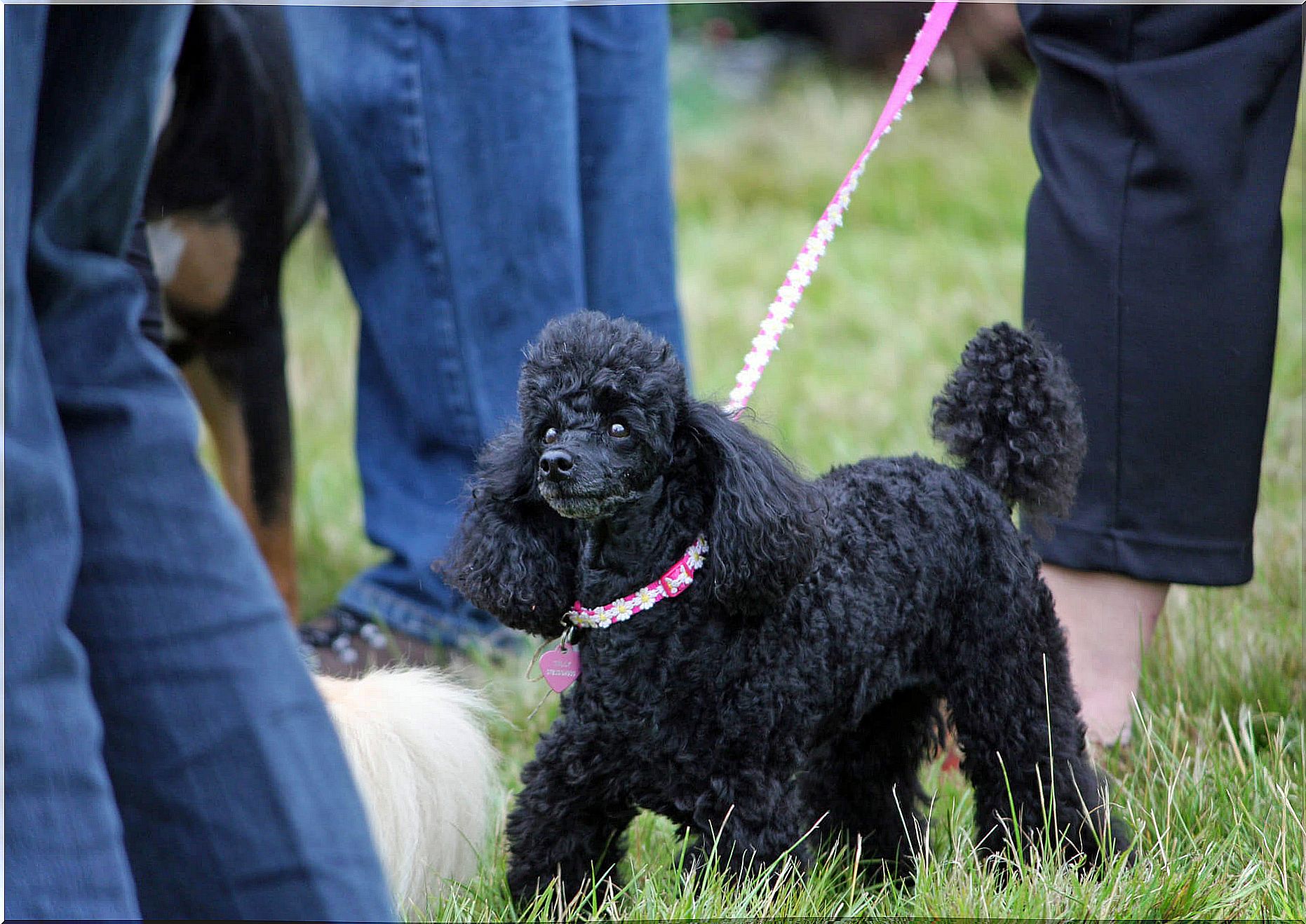
This poodle’s gaze is full of cunning.
Poodles are highly trainable dogs. They like activity and enjoy intelligence games. Do not forget the following guidelines to plan a complete education routine for your poodle:
- Basic obedience
- Regular activity
- Mental and physical stimulation
- Intelligence games
If you work a little to teach him what you want him to do and what not, you will get splendid results and you will be able to live better together. They are dogs highly attentive to your instructions, you will be surprised at the results you get by being constant.


